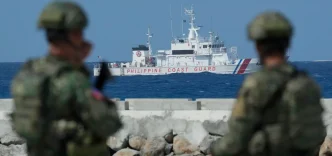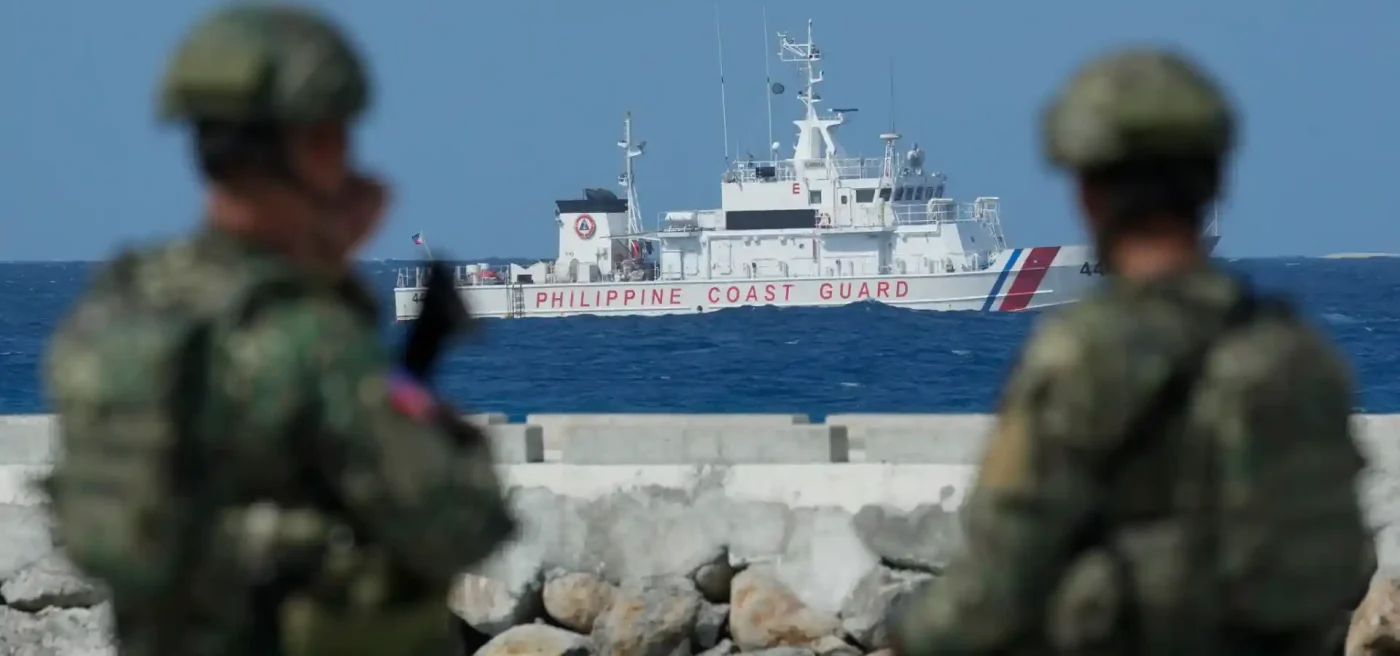Manila has taken a significant step in bolstering its military capabilities by signing a defense cooperation pact with Germany, a move that underscores the Southeast Asian nation’s efforts to modernize its armed forces amid escalating tensions in the South China Sea. The agreement, finalized this week, marks a deepening of bilateral ties between the two countries and signals Manila’s intent to diversify its security partnerships beyond traditional allies like the United States.
A Strategic Partnership
The defense pact, signed during a high-level meeting between Philippine and German officials, focuses on enhancing military training, information sharing, and potential joint exercises. While specific details of the agreement remain undisclosed, officials from both sides emphasized its role in promoting regional stability. Philippine Defense Secretary Gilberto Teodoro hailed the pact as a “milestone in our defense cooperation” during a press briefing, highlighting Germany’s expertise in military technology and training as key benefits for the Armed Forces of the Philippines (AFP).
Germany, a major player in the European Union with a growing interest in the Indo-Pacific region, views the partnership as part of its broader strategy to counterbalance China’s influence. German Foreign Minister Annalena Baerbock, speaking at the signing ceremony, noted that “a rules-based international order is crucial for peace in the South China Sea,” signaling Berlin’s commitment to supporting freedom of navigation in the disputed waters.
Context of Regional Tensions
The timing of the pact is significant, as the Philippines continues to face maritime disputes with China over territories in the South China Sea, particularly the West Philippine Sea, which Manila claims as part of its exclusive economic zone. Recent years have seen increased Chinese incursions into these waters, prompting the Philippines to ramp up its defense posture. While the country has long relied on the United States for military support under the Mutual Defense Treaty of 1951, President Ferdinand Marcos Jr.’s administration has sought to broaden its network of allies, engaging with nations like Japan, Australia, and now Germany.
The South China Sea remains a flashpoint for geopolitical rivalry, with trillions of dollars in trade passing through its waters annually. Beijing’s expansive claims, often disregarding international rulings such as the 2016 Permanent Court of Arbitration decision favoring the Philippines, have heightened tensions not only with Manila but also with neighboring countries like Vietnam and Malaysia. For Germany, which has sent naval vessels to the region in recent years as part of EU-led missions, the pact with the Philippines represents a concrete step toward ensuring maritime security in this critical corridor.
Modernizing the Philippine Military
The defense agreement comes at a time when the Philippines is undergoing a multi-billion-dollar military modernization program, aimed at transitioning the AFP from an internal security focus to a more robust external defense capability. Budget allocations for defense have increased under Marcos Jr., with significant investments in naval assets, surveillance systems, and air defense technologies. However, challenges remain, including limited funding and outdated equipment, which have historically hampered the country’s ability to project power effectively.
Germany’s involvement could prove pivotal in addressing some of these gaps. Known for its advanced defense industry, including companies like Rheinmetall and ThyssenKrupp, Germany is well-positioned to provide technical expertise and possibly equipment to the Philippines. While the current pact does not explicitly include arms sales, analysts suggest that future negotiations could pave the way for such deals. “If confirmed, this could be a game-changer for the AFP, giving them access to cutting-edge European technology” said Maria Lopez, a defense analyst based in Manila.
Public sentiment in the Philippines appears cautiously optimistic about the partnership. Social media platforms, including posts from Filipino users on X, reflect a mix of hope for stronger defenses and skepticism about the government’s ability to implement agreements effectively. One user commented, “We need more than just papers signed; we need real equipment and training on the ground” reflecting a broader demand for tangible results.
Broader Implications for the Indo-Pacific
The Philippines-Germany pact also carries implications for the wider Indo-Pacific region, where a complex web of alliances and rivalries continues to evolve. For the European Union, Germany’s engagement with Manila aligns with the bloc’s 2021 Indo-Pacific strategy, which prioritizes partnerships with ASEAN countries to counter China’s growing assertiveness. This agreement could encourage other European nations, such as France or the United Kingdom, to deepen their own security ties with the Philippines.
At the same time, the pact may draw scrutiny from Beijing, which has historically viewed foreign involvement in the South China Sea with suspicion. Chinese state media outlets have yet to comment directly on the agreement, but past reactions to similar partnerships suggest that Beijing may interpret this as another attempt to “contain” its regional influence. Philippine officials, however, have stressed that the pact is not directed at any specific country, with Teodoro stating, “Our goal is to build capacity, not to provoke” during the press briefing.
Domestic and International Reactions
Within the Philippines, the defense pact has sparked debate among policymakers and civil society groups. Supporters argue that it strengthens national security at a critical juncture, while critics caution against over-reliance on foreign partnerships. Senator Risa Hontiveros, a vocal advocate for Philippine sovereignty, welcomed the agreement but urged transparency in its implementation. “We must ensure that this partnership serves Filipino interests first and foremost” she said in a statement to local media.
Internationally, traditional allies like the United States and Japan have expressed support for the Philippines’ efforts to diversify its defense relationships. A spokesperson for the U.S. State Department described the pact as “a positive development for regional stability” while Japanese officials reiterated their commitment to trilateral cooperation with Manila and Washington. These endorsements highlight the broader geopolitical alignment taking shape, with the Philippines positioned as a key player in maintaining a free and open Indo-Pacific.
Challenges and Uncertainties Ahead
Despite the optimism surrounding the pact, several challenges loom on the horizon. Implementing the agreement will require sustained political will and financial commitment from both sides, particularly given the Philippines’ constrained defense budget. Additionally, the effectiveness of joint training and exercises will depend on the interoperability of German and Filipino forces, which may take years to fully develop.
Moreover, the pact’s long-term impact on regional dynamics remains uncertain. While it may deter aggression in the short term, it could also contribute to an escalating cycle of militarization in the South China Sea if perceived as a provocative move by other stakeholders. Analysts warn that without parallel diplomatic efforts to de-escalate tensions, such agreements risk further complicating an already volatile situation.
As the Philippines navigates these challenges, the defense pact with Germany stands as a testament to Manila’s evolving foreign policy—one that seeks to balance strategic partnerships with the imperative of national sovereignty. Whether this agreement translates into meaningful security gains or remains a symbolic gesture will depend on the actions taken in the months and years ahead. For now, as regional tensions simmer, the eyes of the Indo-Pacific remain fixed on how this partnership unfolds.
















